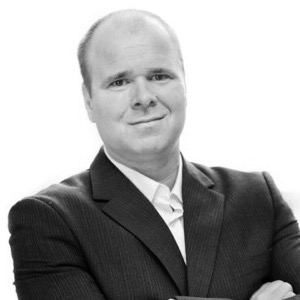Data and technology are the future of market and communication.
If the CMO is to succeed with data-driven marketing communication, they need to jump wholeheartedly into digital change.
The use of large amounts of data to extract valuable insights is rising in the communications and marketing industry. Experts are endorsing it as the future of modern marketing. But is it the case that more and more data automatically means better decisions? Hardly, says Professor Alexander Buhmann at the Department of Communication and Culture at BI Norwegian Business School.
Buhmann is a highly recognised research voice in communication, digital technology and management; he also holds key positions in organisations such as the International Journal of Strategic Communication and the European Communication Monitor.
He points out that data-driven communication currently has some significant challenges that marketers must solve before it reaches its full potential.
“The enormous amounts of data are both a blessing and a curse. The insights of big data can be a great advantage when it comes to making better decisions across organisations. Still, it requires higher competence in the marketing and communications manager,” he says.
Data is often misused.
Buhmann has identified several reasons why computer-based communication has challenges as a method. The first of them revolve around the selective use of data. Communication and marketing managers often use data appropriately to substantiate messages or with self-promoting intentions rather than leveraging it to make better decisions.
“Many are trying to collect selected data that can support campaigns and tactics – to convince customers that the measures were effective and successful. Fitting in data and information to secure backing is a practice with deep roots that is unlikely to subside anytime soon,” Buhmann says.
Any media company, department, manager and communications advisor should take a self-critical look in the mirror and ask themselves; Is this a good and honest working methodology?
See Also: The Courageous CMO: Prioritises brand building
A gap in competence
Another challenge is the lack of skills in handling large amounts of data. The background is the explosive growth of digital tools and the growing access to data and information. Data has become a complex and multifaceted mass, and simultaneously, thousands of different tools are being developed, all claiming they will help us automate processes and provide valuable insights.
“Recent figures from the European Communication Monitor show that fifty per cent of communications managers do not feel competent to handle big data. Some even claimed that the vast amounts of available data out there felt like a burden rather than a resource,” Buhmann says.
So we have a way to go in terms of competence and skills. An interesting issue is how to get organised to succeed with computer-based working methods; This is a critical discussion that agencies, departments and communications professionals need to figure out how to create new teams of existing specialists and people with data management and interpretation knowledge.
Willingness to embrace digital change
What about the willingness and motivation to address digital change and big data in the communications and marketing industries? Somewhat hesitant, according to the professor, who points out that only about half of executives out there will closely follow the debate and the development of communication technology to understand how and what it takes to lift their company. It testifies to a gap in motivation, but there is light in the tunnel:
“We see that routines and standards are increasingly being established to, for example, find the best ways to acquire new communications technology; This is becoming an essential discussion in academia and the industry. Among other things, companies have a lot to gain from coordinating such processes with IT departments. Often, other departments can use the data from Martech/Komtech tools,” says Buhmann.
The cornerstone of your entire business
Thus, we get into one last central part of computer-based communication. If we eventually get the challenges mentioned above in order – and no longer use data as it fits, and learn to deal with the complexity of large amounts of data – the methodology will have an effect far beyond marketing departments, according to Buhmann:
” I see computer-based communication as part of a long journey towards management itself becoming more data-driven. I would say that the value in data volumes and communication technology is so great that it provides a strategic opportunity to break down silo thinking in organisations. Big data has the potential to become an essential resource for far more than just the communication and marketing departments.”
The professor concludes by turning to leaders:
“This is a big responsibility among communication and marketing leaders out there. Digital change is a fundamental leadership responsibility, and being quick and receptive to trends and developments is vital. Here, the leaders have to keep up. The opportunity is to make communication and marketing the hub that creates insights from big data for the entire organisation. Then we start talking about communication and marketing becoming cornerstones of the company,” he concludes.
 |
About the authorAndreas Thue is the founder and managing director of Iteo, Norway’s leading B2B agency and one of four BBN partners in the Nordics. Iteo has been recognised as the best Communications-agency in Norway five years in a row (2017-2021) and as the best content & performance agency in 2021. |




